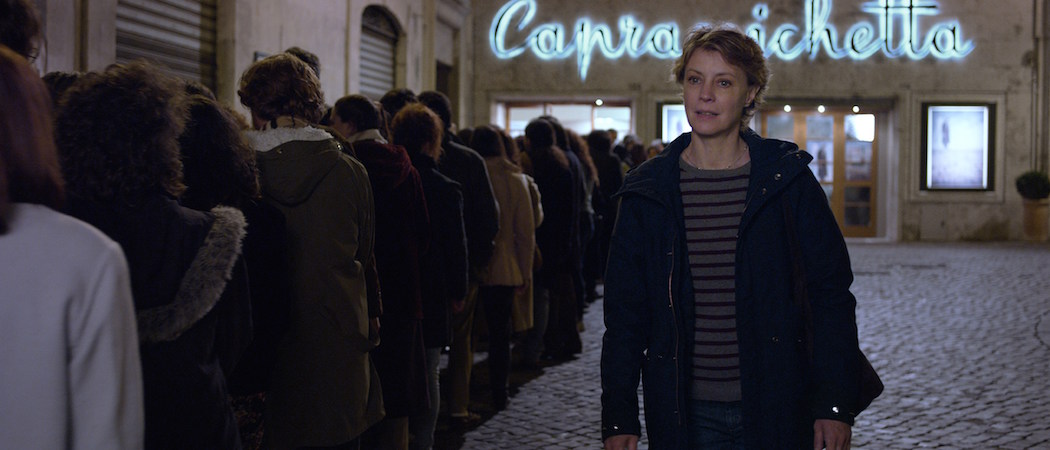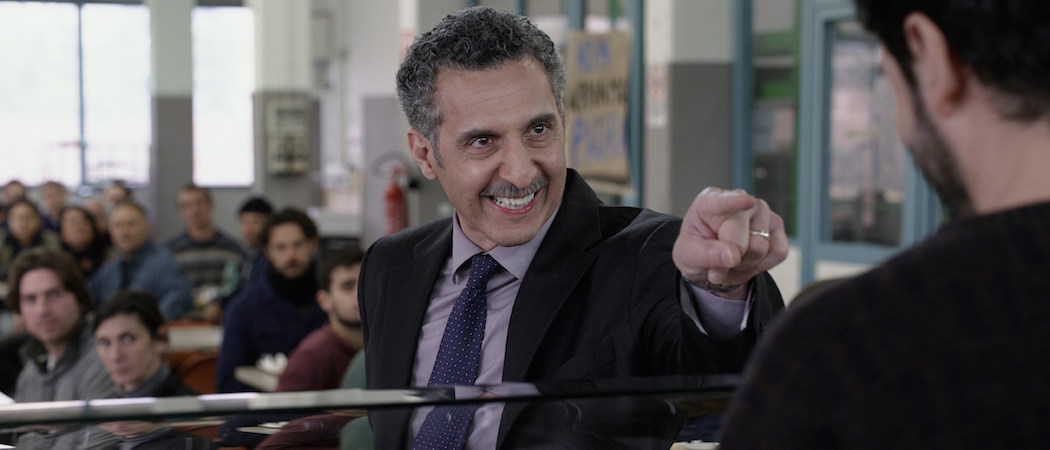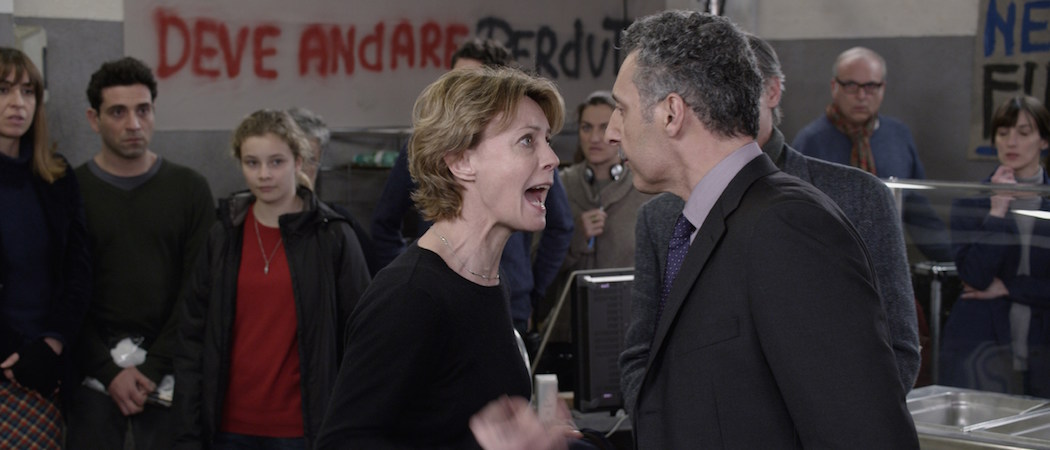Regret and emotional weakness flavour Mia Madre, the latest film from Italian director Nanni Moretti. The film has been acclaimed as Moretti’s best since the Palme d’Or-winning The Son’s Room (2001), and the lively comedy-drama (emphasis on the latter half of that equation) is rich with the swelling open-heartedness of his best films. With a slew of tender and graceful performances, as well as an intriguing and original story, Mia Madre seems poised for success, but it can unfortunately feel muted and strangely unsatisfying.
Margherita Buy stars as a woman also named Margherita, around whom the film’s events orbit. She is a film director working on a polemical piece about workers’ rights, but at the same time she must contend with the numb end of her relationship with Vittorio (Enrico Ianniello), the incompetence of the boisterous Italian-American star Barry (John Turturro) and the worsening condition of her hospital-bound mother Ada (Giulia Lazzarini).
Moretti, not unlike the film’s protagonist, is a heavy-handed director. Sometimes it works in his favour, particularly when the film reaches its heart-wrenching emotional crescendos, but often it doesn’t. He has a tendency to weigh down the film with a ponderous soundtrack – including selections by Estonian composer Arvo Pärt that don’t really fit the tone of the film – and inert momentary digressions that feel like ambitious overreach.
Buy’s marvellous performance is not really allowed to breathe as well as it could, and so it frustratingly feels that we never reach the heart of her complex character. The same is true of John Turturro; his Barry is hilarious as he tests Margherita’s patience both personally and on-set, but the way in which his personal frustrations play into Margherita’s story can seem shallow and contrived because the audience is not allowed to know him properly.
But there is so much warmth to Mia Madre that it’s hard not to be moved by it. Margherita is a fresh and likable protagonist, a work-minded woman whose ambition and is matched only by her compassion. The familial relationships in the film – between Margherita and her brother Giovanni (director Moretti), her daughter Livia (Beatrice Mancini) and all of them to the ailing Ada – are its most genuine and touching asset, helping the film strike all its purest notes when it really needs to.
Mia Madre can’t be called a true success, but it’s still one of the more honest and insightful movies you’re likely to see this year. Its slight frustrations can’t overwhelm its heartfelt and original narrative. It’s a certain kind of movie for a certain kind of audience; It’s not a grand statement, even if it feels like sometimes it’s angling for that level of pathos, but a simple and beautiful story of human connections.
Mia Madre opens in limited release exclusive to Palace Cinemas from Thursday May 5.









